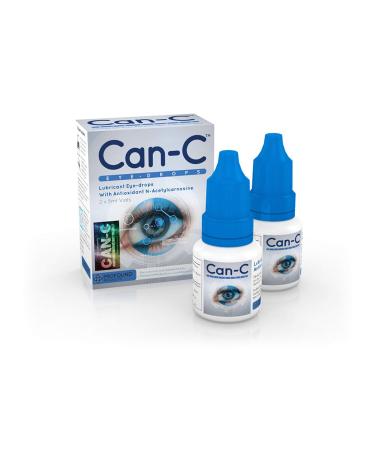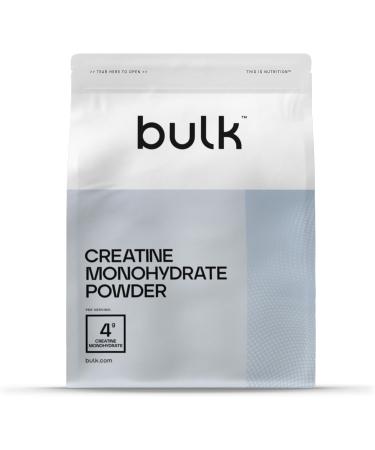The Genoese Pesto of de Cecco is produced according to an exclusive recipe, which contains the characteristic and distinctive ingredients of the traditional ligile recipe, which is professionally connected by the great chef Heinz Beck.One fundamental element is the Italian basil, which is harvested in the coolest hours of the day when the stem is still tender and the leaves release an intensive and delicate aroma Then we edit it with a cold process to keep its color, aromatic profile and fragrance.We add the basil to native olive oil, combined with Parmigiano-Reggiano dop and all sweet and crispy pine nuts, as indicated for the traditional Ligurian recipe.All of these elements create the unique texture that Il Pesto Alla Genovese de Cecco distinguishes.Ingredients: basil 37 Native olive oil extra 36 Cashew flour Parmigiano Reggiano D.O.P.5 Salt Pine nuts 3 Potato flakes Sugar Acid regulator: lactic acid Antioxidant ascorbic acid Average nutritional values per 100 g Energy 1956 KJ - 475 kcal Fat 48.0 g hereof: saturated fatty acids 7.8 g Carbohydrates 4.0 g of which sugar 2, 5 g fiber 3.2 g proteins 5.1 g salt 3.7 g Ingredients ingredients Basil 37 Native olive oil extra 36 Cashew flour Parmigiano Reggiano D.O.P.5 Salt Pine nuts 3 Potato flakes Sugar Acid regulator: lactic acid Antioxidant ascorbic acid LEGAL NOTICE The LMIV introduced, among other things, mandatory information on sewing value declaration, instructions for use and information on the country of origin for goods from abroad.This information must be attached to all pre -packed foods, even if they are intended for further processing (see Art. 2 Para. 2 letter E LMIV).Before the LMIV came into force, this information only had to be declared on packaging intended for the end consumer.The LMIV labeling obligations are essentially also mandatory for unspoken food (so -called ""loose goods"")), with certain exceptions apply here.For example, the obligation to identify nutritional marking is no longer necessary for these goods.First of all, the food entrepreneur is responsible for information about food, under whose names or company the food is marketed, or - if it is not settled in the EU - the importer.According to Art. 8 Para. 3 LMIV, food entrepreneurs are also in second place in other sales levels, since they are not allowed to put food on the market.The information about food according to the LMIV must be attached to food packaging or on a label attached.Furthermore, the mandatory information in a ""easy -to -understand language"" for the consumers of the respective member state in which a food is marketed must be written.In Germany the label must be made in German (comparisons 2 LMIDV).For products with foreign declaration, this means that they have to be provided with an additional label in the form of a sticker with the information in German.Additional labeling is unnecessary if the product is printed in multilingual language and the German labeling meets the requirements of the LMIV. MoreThe Genoese Pesto of de Cecco is produced according to an exclusive recipe, which contains the characteristic and distinctive ingredients of the traditional ligile recipe, which is professionally connected by the great chef Heinz Beck.Das genuesische Pesto von De Cecco wird nach einem exklusiven Rezept hergestellt, das die charakteristischen und unverwechselbaren Zutaten des traditionellen ligurischen Rezepts enthält, das vom großen Küchenchef Heinz Beck fachmännisch verbunden wird. Ein grundlegendes Element ist das italienische Basilikum, das in den kühlsten Stunden des Tages geerntet wird, wenn der Stiel noch zart ist und die Blätter ein intensives und zartes Aroma freisetzen Anschließend bearbeiten wir es mit einem Kaltverfahren, um seine Farbe, sein aromatisches Profil und seinen Duft zu bewahren. Dem Basilikum fügen wir natives Olivenöl extra hinzu, kombiniert mit Parmigiano-Reggiano DOP und ganzen süßen und knusprigen Pinienkernen, wie für das traditionelle ligurische Rezept angegeben. All diese Elemente schaffen die einzigartige Textur, die Il Pesto alla Genovese De Cecco auszeichnet. ZUTATEN: Basilikum 37 Natives Olivenöl extra 36 Cashewmehl Parmigiano Reggiano D.O.P. 5 Salz Pinienkerne 3 Kartoffelflocken Zucker Säureregulator: Milchsäure Antioxidationsmittel Ascorbinsäure Durchschnittliche Nährwerte pro 100 g Energie 1956 kJ – 475 kcal Fett 48,0 g davon: gesättigte Fettsäuren 7,8 g Kohlenhydrate 4,0 g davon: Zucker 2, 5 g Ballaststoffe 3,2 g Proteine 5,1 g Salz 3,7 g INHALTSSTOFFE ZUTATEN Basilikum 37 Natives Olivenöl extra 36 Cashewmehl Parmigiano Reggiano D.O.P. 5 Salz Pinienkerne 3 Kartoffelflocken Zucker Säureregulator: Milchsäure Antioxidationsmittel Ascorbinsäure RECHTLICHE HINWEISE Durch die LMIV wurden unter anderem Pflichtangaben zu Nähwertdeklaration, Gebrauchsanweisungen und Angaben zum Ursprungsland bei Waren aus dem Ausland eingeführt. Diese Informationen müssen auf allen vorverpackten Lebensmitteln angebracht sein, auch wenn sie zur Weiterverarbeitung bestimmt sind (zur Definition "vorverpackter Lebensmittel" siehe Art. 2 Abs. 2 Buchst. e LMIV). Vor Inkrafttreten der LMIV mussten diese Angaben nur auf für den Endverbraucher bestimmten Verpackungen deklariert werden. Die Kennzeichnungspflichten der LMIV sind im Wesentlichen auch für nicht vorverpackte Lebensmittel (sogenannte "lose Ware") obligatorisch, wobei hier gewisse Ausnahmen gelten. So entfällt bei diesen Waren zum Beispiel die Pflicht zur Nährwertkennzeichnung. Für die Information über Lebensmittel ist an erster Stelle der Lebensmittelunternehmer verantwortlich, unter dessen Namen oder Firma das Lebensmittel vermarktet wird, oder – wenn dieser nicht in der EU niedergelassen ist – der Importeur. Nach Art. 8 Abs. 3 LMIV sind aber auch Lebensmittelunternehmer in anderen Vertriebsstufen an zweiter Stelle in der Pflicht, da sie Lebensmittel die den Anforderungen der LMIV nicht entsprechen, nicht in den Verkehr bringen dürfen. Die nach der LMIV verpflichtenden Angaben über Lebensmittel sind auf Lebensmittelverpackungen oder auf einem an diesen befestigten Etikett anzubringen. Ferner müssen die Pflichtangaben in einer für die Verbraucher des jeweiligen Mitgliedsstaates, in dem ein Lebensmittel vermarktet wird, "leicht verständlicher Sprache" abgefasst sein. In Deutschland hat die Kennzeichnung in deutscher Sprache zu erfolgen (vergleiche 2 LMIDV). Für Produkte mit ausländischer Deklaration bedeutet dies, dass sie mit einem Zusatzetikett in Form eines Aufklebers mit den Informationen in deutscher Sprache versehen werden müssen. Eine zusätzliche Etikettierung ist unnötig, wenn das Produkt mehrsprachig bedruckt ist und die deutsche Kennzeichnung den Anforderungen der LMIV entspricht. MehrDas genuesische Pesto von De Cecco wird nach einem exklusiven Rezept hergestellt, das die charakteristischen und unverwechselbaren Zutaten des traditionellen ligurischen Rezepts enthält, das vom großen Küchenchef Heinz Beck fachmännisch verbunden wird.6x De Cecco Pesto alla Genovese con Parmigiano Reggiano senza aglio Pesto mit frischem Basilikum, Parmigiano Reggiano ohne Knoblauch 190g Italienisches Sauce













